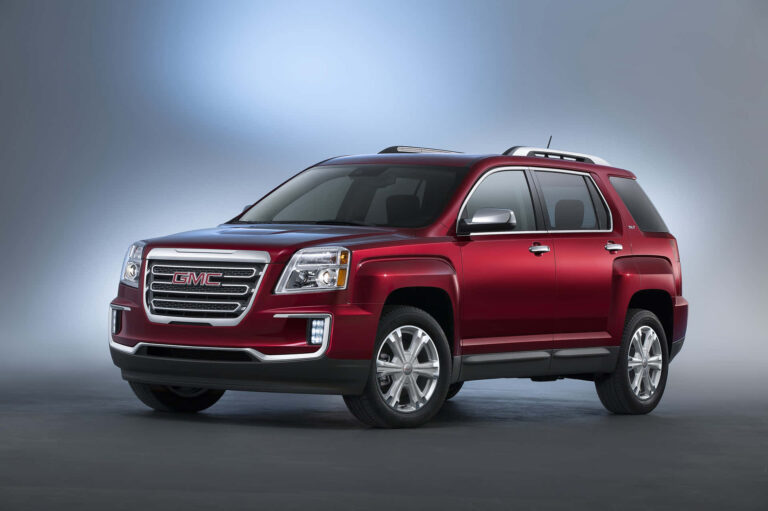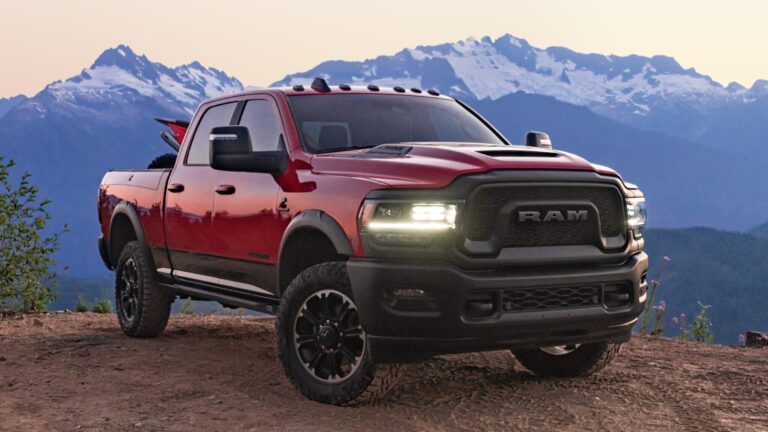U-Haul Trailer Rentals Rates And Sizes: Your Comprehensive Guide to Moving Smart
U-Haul Trailer Rentals Rates And Sizes: Your Comprehensive Guide to Moving Smart cars.truckstrend.com
Moving, hauling, or transporting goods doesn’t always require purchasing a truck or hiring a full-service moving company. For countless individuals and businesses, U-Haul trailer rentals offer a flexible, cost-effective, and highly accessible solution. Whether you’re relocating across town, embarking on a DIY home improvement project, or simply need to transport a vehicle, understanding the nuances of U-Haul’s trailer offerings – their diverse sizes, varying rates, and specific applications – is crucial for a smooth and successful experience. This comprehensive guide will demystify U-Haul trailer rentals, empowering you to make informed decisions for your next hauling need.
The Foundation: Understanding U-Haul Trailer Types
U-Haul Trailer Rentals Rates And Sizes: Your Comprehensive Guide to Moving Smart
U-Haul categorizes its trailers into three primary types, each designed for distinct purposes. Knowing the differences is the first step in selecting the right equipment.
- Cargo Trailers: These are enclosed trailers, providing security and protection from the elements for your belongings. They are ideal for moving household goods, furniture, or any items that need to stay dry and secure.
- Utility Trailers: Open-top trailers with low sides, utility trailers are perfect for hauling oddly shaped items, construction materials, landscaping supplies, or anything that doesn’t require protection from weather or security from theft. Many come with a built-in ramp for easy loading.
- Car Trailers (Vehicle Transports): Designed specifically for moving vehicles, this category includes:
- Auto Transports: Full trailers that lift all four wheels of the towed vehicle off the ground. Ideal for long distances, classic cars, or vehicles that are not drivable.
- Tow Dollies: Two-wheel trailers that lift only the front wheels of the towed vehicle off the ground, leaving the rear wheels on the road. Suitable for front-wheel-drive vehicles and shorter distances.

Decoding U-Haul Trailer Sizes: Dimensions and Capacities
Choosing the right size is paramount to avoid multiple trips or, worse, being unable to fit your items. Each trailer type comes in several sizes, offering various capacities to match your specific needs.
Cargo Trailer Sizes:
![]()
- 4×8 Cargo Trailer:
- Dimensions: Approximately 4 ft wide x 8 ft long x 4.5 ft high (interior).
- Capacity: Roughly 140-160 cubic feet.
- Payload: Up to 1,600 lbs.
- Best For: Studio apartment moves, small furniture, boxes, or dorm room contents. It’s often touted as the "smallest" enclosed trailer, perfect for quick, light hauls.

- 5×8 Cargo Trailer:
- Dimensions: Approximately 5 ft wide x 8 ft long x 5 ft high (interior).
- Capacity: Roughly 200-250 cubic feet.
- Payload: Up to 1,800 lbs.
- Best For: Small apartments, a few pieces of furniture, or numerous boxes. A popular choice for local moves.
- 5×10 Cargo Trailer:
- Dimensions: Approximately 5 ft wide x 10 ft long x 5.5 ft high (interior).
- Capacity: Roughly 250-300 cubic feet.
- Payload: Up to 2,000 lbs.
- Best For: 1-bedroom apartments, larger furniture items, or more extensive box loads. Offers a bit more length than the 5×8.
- 6×12 Cargo Trailer:
- Dimensions: Approximately 6 ft wide x 12 ft long x 5.5 ft high (interior).
- Capacity: Roughly 300-350 cubic feet.
- Payload: Up to 2,500 lbs.
- Best For: 1-2 bedroom apartments, larger appliances, and substantial furniture. This is the largest enclosed trailer, providing significant space for bigger moves.
Utility Trailer Sizes:
- 4×7 Utility Trailer:
- Deck Area: Approx. 4 ft wide x 7 ft long.
- Payload: Up to 1,700 lbs.
- Best For: Small, odd-shaped items, lawn equipment, or a few pieces of lumber.
- 5×8 Utility Trailer:
- Deck Area: Approx. 5 ft wide x 8 ft long.
- Payload: Up to 1,800 lbs.
- Best For: Construction debris, landscaping materials, ATVs, or small appliances. Often comes with a ramp.
- 5×9 Utility Trailer with Ramp:
- Deck Area: Approx. 5 ft wide x 9 ft long.
- Payload: Up to 1,600 lbs.
- Best For: Motorcycles, larger ATVs, riding mowers, or heavy appliances. The ramp makes loading easy.
- 6×12 Utility Trailer:
- Deck Area: Approx. 6 ft wide x 12 ft long.
- Payload: Up to 2,500 lbs.
- Best For: Large construction materials, multiple motorcycles, or significant landscaping projects. The largest utility option.
Car Trailer Sizes:
- Tow Dolly:
- Capacity: Designed for vehicles weighing up to 3,900 lbs (curb weight).
- Best For: Front-wheel-drive vehicles for local or medium-distance moves.
- Auto Transport:
- Capacity: Designed for vehicles weighing up to 5,290 lbs (curb weight).
- Best For: All-wheel-drive, four-wheel-drive, classic, or non-operable vehicles for any distance.
U-Haul Trailer Rental Rates Explained: Factors Influencing Price
U-Haul trailer rental rates are dynamic and influenced by several factors. Understanding these can help you budget effectively.
- Local vs. One-Way Rentals:
- Local Rentals: Typically charged a flat daily rate. You pick up and return the trailer to the same U-Haul location. This is generally the most economical option for short-distance hauls.
- One-Way Rentals: The rate is determined by the pick-up and drop-off locations, the duration of the rental, the specific trailer size, and current demand. One-way rentals are designed for cross-town or long-distance moves where returning to the origin isn’t feasible. They are generally more expensive than local rentals.
- Duration of Rental: Rates are primarily daily, but multi-day rentals can sometimes offer slight discounts compared to consecutive single-day rentals.
- Location and Demand: Prices can vary based on geographic location (e.g., urban vs. rural, high-demand areas) and seasonal demand. Peak moving seasons (summer, end of month) often see higher rates.
- Optional Coverage: U-Haul offers various protection plans (like SafeTow®) that cover damage to the trailer or your belongings while in transit. These are additional costs but can provide peace of mind.
- Accessories and Add-ons: Hitches, wiring harnesses, moving blankets, and other equipment are available for purchase or rent, adding to the total cost.
Important Note on Rates: U-Haul’s pricing is highly dynamic. The rates provided in the table below are estimates based on typical pricing and can vary significantly based on the factors mentioned above, especially for one-way rentals. Always get a direct quote from U-Haul for the most accurate pricing.
Comprehensive U-Haul Trailer Rates and Sizes Table
This table provides an overview of U-Haul trailer types, typical dimensions, capacities, and estimated daily local rental rates, along with a typical range for one-way options.
| Trailer Type | Size (WxLxH, Interior/Deck) | Approx. Capacity (Cubic Ft / Payload) | Empty Weight (Approx.) | Typical Daily Local Rate (Est.) | Typical One-Way Rate Range (Est.) | Notes |
|---|---|---|---|---|---|---|
| Cargo Trailers | (Enclosed, Weather Protected) | |||||
| 4×8 Cargo | 4’x8’x4.5′ | 140-160 cu ft / 1,600 lbs | 850 lbs | $14.95 – $19.95 | $70 – $150+ | Smallest enclosed, good for boxes/small furniture. |
| 5×8 Cargo | 5’x8’x5′ | 200-250 cu ft / 1,800 lbs | 900 lbs | $18.95 – $24.95 | $80 – $200+ | Popular for small apartments, more spacious than 4×8. |
| 5×10 Cargo | 5’x10’x5.5′ | 250-300 cu ft / 2,000 lbs | 1,200 lbs | $24.95 – $29.95 | $90 – $250+ | Ideal for 1-bedroom apartments, longer items. |
| 6×12 Cargo | 6’x12’x5.5′ | 300-350 cu ft / 2,500 lbs | 1,500 lbs | $29.95 – $34.95 | $100 – $300+ | Largest enclosed, suitable for 1-2 bedroom moves. |
| Utility Trailers | (Open Top, Versatile) | |||||
| 4×7 Utility | 4’x7′ (deck) | N/A / 1,700 lbs | 600 lbs | $14.95 – $19.95 | N/A (Local Only) | Smallest utility, basic hauling. |
| 5×8 Utility | 5’x8′ (deck) | N/A / 1,800 lbs | 800 lbs | $18.95 – $24.95 | N/A (Local Only) | General purpose, often with ramp. |
| 5×9 Utility (Ramp) | 5’x9′ (deck) | N/A / 1,600 lbs | 900 lbs | $24.95 – $29.95 | N/A (Local Only) | Great for motorcycles, ATVs, riding mowers. |
| 6×12 Utility | 6’x12′ (deck) | N/A / 2,500 lbs | 1,300 lbs | $29.95 – $34.95 | N/A (Local Only) | Largest utility, for big jobs, lumber, construction. |
| Car Trailers | (Vehicle Transport) | |||||
| Tow Dolly | N/A | Up to 3,900 lbs (vehicle curb weight) | 750 lbs | $44.95 – $54.95 | $100 – $250+ | For front-wheel-drive vehicles, 2 wheels up. |
| Auto Transport | N/A | Up to 5,290 lbs (vehicle curb weight) | 2,200 lbs | $54.95 – $64.95 | $150 – $400+ | For all vehicles, all 4 wheels off ground. |
Disclaimer: All prices are estimates and subject to change based on location, availability, demand, and specific rental details. Always confirm current rates directly with U-Haul. One-way rates vary significantly based on distance and route. Utility trailers are generally for local use only.
How to Choose the Right Trailer: Practical Advice
Selecting the perfect U-Haul trailer requires careful consideration of your specific needs:
- Assess Your Cargo:
- Volume and Weight: Estimate the cubic feet needed for enclosed trailers or the total weight and dimensions for open trailers. Don’t overload! U-Haul provides helpful online guides and calculators.
- Fragility and Protection: If items are sensitive to weather or need security, a cargo trailer is essential. For rugged items, a utility trailer works.
- Odd Shapes: Large, bulky, or irregularly shaped items (e.g., tree trunks, construction beams, large machinery) are often better suited for open utility trailers.
- Evaluate Your Towing Vehicle:
- Towing Capacity: Crucially, your vehicle’s towing capacity (found in your owner’s manual) must exceed the combined weight of the trailer and its loaded contents. Never exceed this limit.
- Hitch Type: Ensure your vehicle has a properly installed hitch (Class I, II, III, etc.) with the correct ball size (usually 1 7/8" or 2" for U-Haul trailers).
- Wiring Harness: You’ll need a functional 4-way flat light connector for the trailer’s lights. U-Haul can install hitches and wiring if needed.
- Consider the Distance and Duration:
- Local Moves: Opt for daily local rates, which are cheaper.
- One-Way/Long Distance: If you’re not returning to the pick-up location, a one-way rental is necessary, but be prepared for higher, more variable pricing.
- Budget: Factor in the rental cost, optional insurance, fuel consumption (towing decreases MPG), and any necessary accessories.
Important Considerations Before and During Your Rental
- Pre-Rental Inspection: Before driving off, thoroughly inspect the trailer for any existing damage, ensure tires are properly inflated, and all lights (brake, turn signals, running lights) are working. Report any issues immediately.
- Loading Properly: Load heavier items first, over the trailer’s axle, to maintain balance. Distribute weight evenly from side to side. Secure all items with ropes, straps, or moving blankets to prevent shifting.
- Safe Towing Practices:
- Reduce Speed: Towing requires longer braking distances and wider turns. Drive slower than usual.
- Increase Following Distance: Give yourself more time to react.
- Account for Sway: Be aware of trailer sway, especially in crosswinds or when passed by large vehicles.
- Regular Checks: Periodically check tire pressure, cargo security, and lights during long trips.
- Insurance: While your auto insurance might offer some coverage, U-Haul’s SafeTow® or other supplemental coverage can protect you from damage to the trailer or your belongings, which is often not covered by standard auto policies. Review these options carefully.
The Rental Process: A Step-by-Step Guide
- Reserve Online or In-Person: Visit U-Haul’s website or a local dealer. Provide your pick-up/drop-off locations, dates, and desired trailer size.
- Confirm Towing Vehicle Capability: U-Haul’s system will verify if your vehicle is compatible with the selected trailer. If you need a hitch or wiring, arrange for installation.
- Pick Up Your Trailer: Bring your valid driver’s license. The U-Haul representative will help you hitch the trailer and ensure lights are working.
- Load and Secure: Follow proper loading techniques and secure your cargo.
- Drive Safely: Adhere to safe towing practices.
- Return the Trailer: Return the trailer on time to the agreed-upon location. Ensure it’s empty and reasonably clean.
Frequently Asked Questions (FAQ)
Q1: Do I need a special license to tow a U-Haul trailer?
A1: In most U.S. states, a standard driver’s license is sufficient for towing U-Haul trailers, provided your vehicle’s towing capacity is adequate and you don’t exceed weight limits. Check your local DMV for specific regulations.
Q2: Can U-Haul install a hitch on my vehicle?
A2: Yes, U-Haul offers hitch installation services and sells all necessary towing accessories, including hitch balls, mounts, and wiring harnesses.
Q3: What if I need the trailer for longer than expected?
A3: Contact U-Haul immediately. Extensions are often possible, but additional daily charges will apply. Unauthorized late returns can incur penalties.
Q4: Are U-Haul trailers equipped with brakes?
A4: Most larger U-Haul trailers (like the 6×12 cargo trailer and auto transports) are equipped with surge brakes, which activate automatically when the towing vehicle slows down. Smaller trailers typically do not have independent brakes.
Q5: What’s the difference between SafeTow® and my personal auto insurance?
A5: Your personal auto insurance may not cover damage to a rented trailer or your cargo. SafeTow® is U-Haul’s optional protection plan that specifically covers damage to the U-Haul trailer and some personal property, offering peace of mind. Always verify coverage with your personal insurer.
Q6: Can I tow a U-Haul trailer with a car?
A6: Yes, many cars, SUVs, and vans have sufficient towing capacity for smaller U-Haul trailers (e.g., 4×8 cargo or 4×7 utility). However, it is absolutely critical to check your vehicle’s specific towing capacity in your owner’s manual and ensure you have the proper hitch and wiring.
Conclusion
U-Haul trailer rentals offer a powerful and flexible solution for a wide array of hauling and moving needs. By thoroughly understanding the different trailer types, their precise sizes and capacities, and the factors that influence rental rates, you can confidently select the perfect equipment for your task. Remember to prioritize safety by ensuring your towing vehicle is capable, loading the trailer correctly, and practicing safe towing habits. With this comprehensive guide, you’re now well-equipped to navigate the world of U-Haul trailer rentals, making your next move or hauling project efficient, secure, and budget-friendly.
![]()




